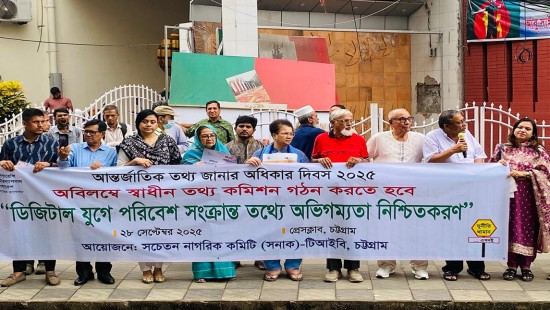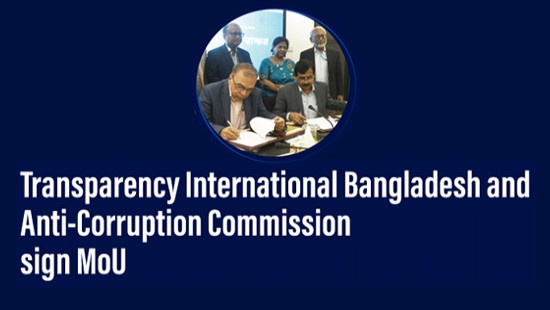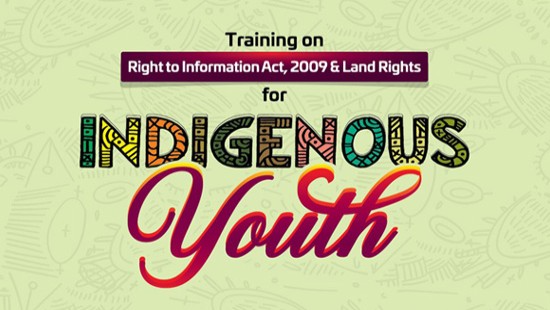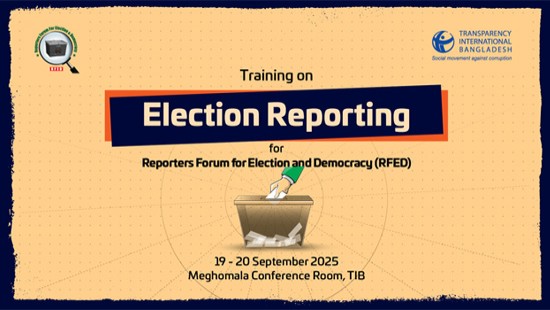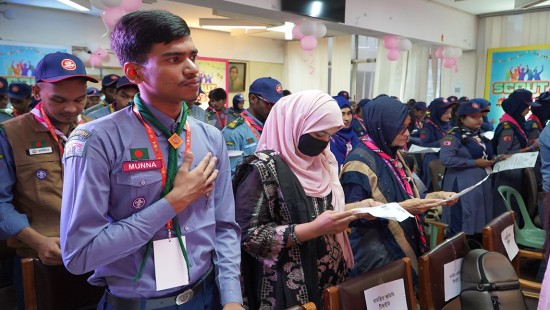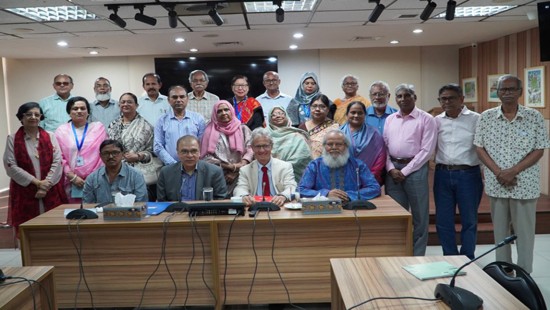Published: 17 January 2024

In a comprehensive research report, Transparency International Bangladesh (TIB) has exposed unsettling findings about the 12th National Parliament Election, held on 7 January 2024. The report titled '12th National Parliament Election Process Tracking' has meticulously dissected the election proceedings, revealing a number of challenges, controversies, and systemic failures that pose a significant threat to the foundations of the country's democracy.
Objectives and Methodology:
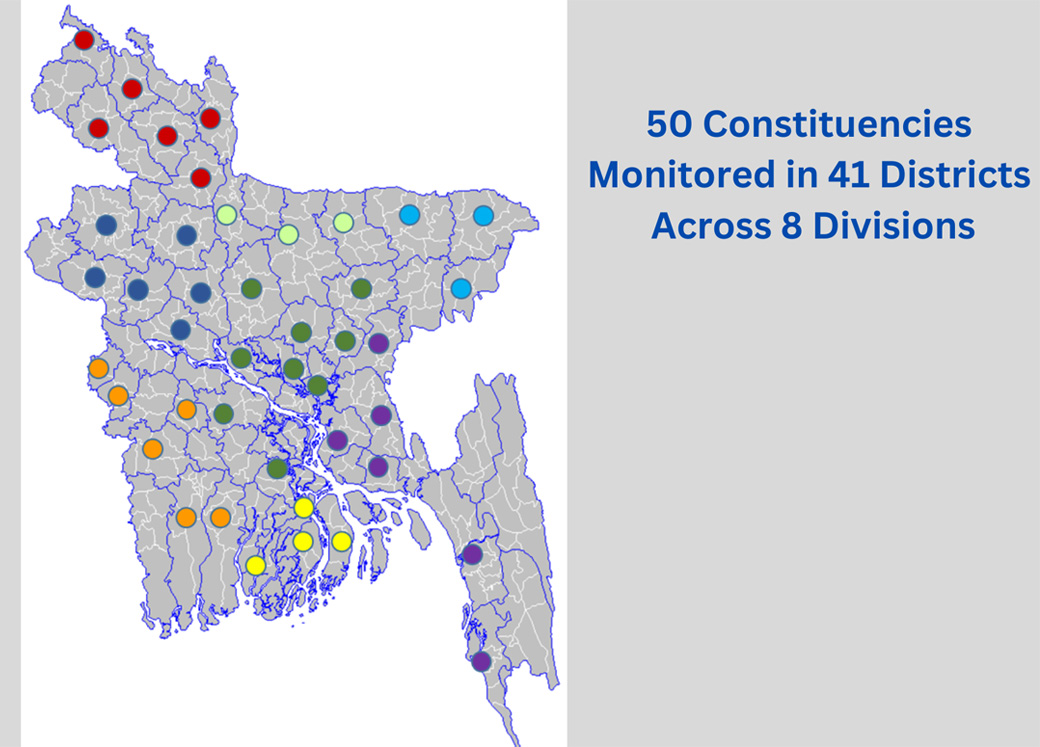
The primary objective of the study was to assess fairness, transparency and competitiveness of the 12th National Parliament Election. Utilising a mixed-method approach, TIB selected 50 constituencies for qualitative and quantitative analysis, collecting field data from June 2023 to January 2024 covering both the pre-election atmosphere and the post-election outcomes.
Key Findings:
According to the study, pre-election violence, mostly taking place during the series of strikes, blockades, and protests called by the largest political opposition, BNP, created an atmosphere of fear and unrest among citizens. Political blame game over the violence running up to the election also created spaces for distrust. The largest opposition had also boycotted the polls along with alliance partners prompting the ruling party to engage its independent candidates and greater alliance partners as oppositions in the polls. This one-sided political competitiveness among ruling party partners resulted in a non-participatory election with low voter turnout.
The report also revealed a series of concerning findings, starting with challenges in the equitable distribution of constituencies due to significant population disparities that adversely affect fair representation. It also cast doubt on the Election Commission's impartiality in registering new political parties, noting that amendments to the Representation of the People Order (RPO) 1972 have weakened its authority. According to TIB, these changes perpetuate vulnerabilities in both the electoral system and the Election Commission.
Moreover, TIB criticized the Election Commission for its inactivity and failure to facilitate an inclusive election involving all political parties. TIB contends that the Commission possessed the authority to advocate for electoral system changes to enhance participation, yet it remained inactive and fell short of fulfilling its constitutional responsibilities effectively.
A high rate of breach of electoral code of conduct by almost every candidate further tainted the electoral process. However, the Election Commission was mostly unable to address the code of conduct violations and apply appropriate punitive measures.

Controversial statements from the election officials, biased media coverage, early campaigning by the ruling party candidates, and expenditure by candidates exceeding legal limits have also impacted the approval rating of the election.
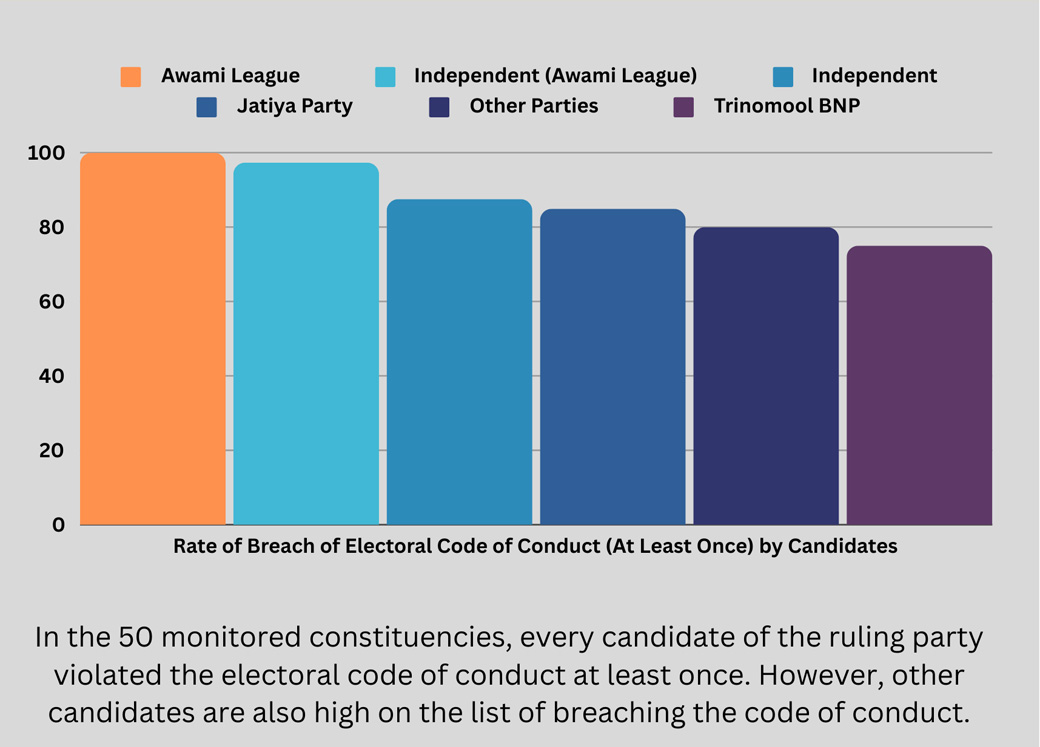
The diminishing number of election observers, incarceration of opposition leaders, and campaign-related violence added to the narrative outlining democratic decline.
Overall Observations:
The study report painted a grim picture of the 12th Parliament Election, highlighting one-sided competitiveness, lack of participation, compromised law & order situation, and a jeopardised electoral process. The perceived bias of the EC, combined with the dominance of the ruling party, caused concern over the erosion of democratic values. The report also warned of the pitfalls of absolute control by the ruling party, signalling potential conflicts of interest and policy capture by vested quarters. The risk to good governance and the potential surge in government distrust could make Bangladesh a test case for democratic decline, it noted.
TIB's Recommendations:
The study's recommendations urged the stakeholders to address the identified flaws and safeguard the democratic principles that underpin Bangladesh's history and independence. The nation stands at a crossroads, and the choices made now would shape its democratic future, it opined.
For details, click here - https://ti-bangladesh.org/articles/research/6895


